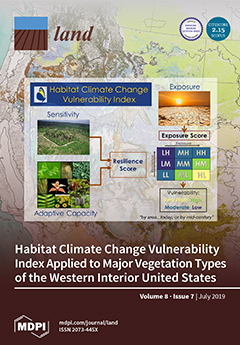Resource information
The current paper examines the legitimacy dilemmas that rise from local governments’ direct policy instruments and market interventions. It takes the case of public land management strategies. The paper argues that current societal challenges—such as energy transition, climate change and inclusive urban innovation—require planning practices to be more effective. Direct government instruments such as direct market interventions have proven to significantly reduce the implementation gap of planning practice. Looking at significant urban challenges, municipalities worldwide could be urged to apply such direct government instruments on a larger scale in the future. However, although direct government intervention in markets can be very effective, it is also controversial in terms of legitimacy. It explicitly and inevitably introduces financial incentives to the organization of government. Balancing these incentives against spatial planning interests unavoidably causes dilemmas. Based on eight Dutch case studies, this paper develops a framework to systematically spell out the legitimacy dilemmas that stem from public market intervention. It facilitates an explicit discussion on varying instrumental rationalities and improving the legitimacy of public action.


